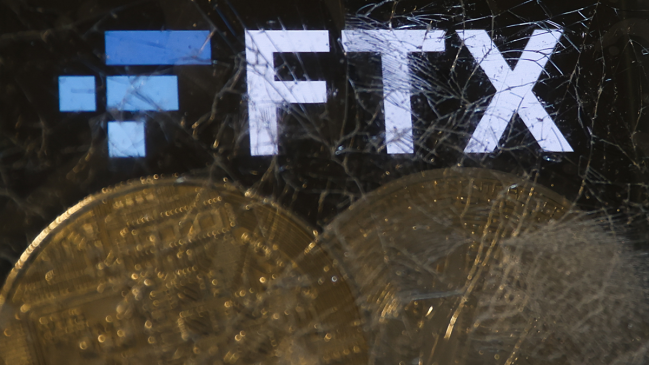
Getty Image
Its been close to 15 years since a mysterious figure known as Satoshi Nakamoto outlined the vision for the “electronic cash system” based on the virtual token that was dubbed “Bitcoin,” which officially became the world’s first cryptocurrency when the blockchain used to mine the digital asset started pumping it out in 2009.
It’s hard to describe just how much crypto has evolved since that fateful day, as Bitcoin was not only able to shed its reputation as “that thing people use to buy drugs on the dark web” but became virtually impossible to ignore following its meteoric rise in value (and subsequent crash) in 2017.
The rise of Bitcoin and the thousands of other cryptocurrencies that came in its wake is inextricably linked with the very vocal evangelists who’ve spent years positioning the space as The Next Big Thing. While there are undoubtedly many people who genuinely believe (or, at one time, believed) that was actually the case, there are also countless others who’ve had some serious—and seriously questionable—incentive to drum up excitement for various projects thanks to the money they stood to make.
It’s almost impossible to keep track of the many, many crypto scams that have ended with fairly gullible investors dealing with some sizeable losses thanks to unscrupulous actors who harnessed massive pump-and-dump schemes and orchestrated “rug pulls” at the expense of anyone foolish enough to trust them.
While the technology used to facilitate these modern heists may be fairly new, the same can’t be said for the strategies that have been used to take advantage of the countless fools who’ve been parted with their money after falling for some dirty (and blatantly illegal) tricks.
Jordan Belfort knows that all too well, as the man who Leonardo DiCaprio portrayed in The Wolf of Wall Street spent years at the helm of a Wall Street boiler room that raked in over $100 million from the rubes he and his associates at Stratton Oakmont convinced to “get in on the ground floor” of worthless penny stocks that metaphorically exploded on the launchpad instead of going to the moon.
It’s safe to say Belfort’s firm was slightly less sophisticated than FTX, the crypto company that had high-profile sponsorship deals with the MLB and Miami Heat and was worth over $30 billion before it imploded in dramatic fashion earlier this month.
Since then, FTX co-founder Sam Bankman-Fried (a.k.a. SBF) has experienced a fall from grace that’s given Theranos founder Elizabeth Holmes a run for her money. Last week, he was named alongside Tom Brady, Larry David, and Shaquille O’Neal in a class-action lawsuit that accused the bankrupt company of bilking customers out of $11 billion, and while the collapse obviously caught plenty of people off guard, Belfort seems to think it was fairly inevitable.
The noted scammer shared some insight into the meltdown during a recent interview on Fox News where he outlined what went wrong and broke down why FTX and SBF were basically destined to meet the fate that they did.
The Truth about FTX.
Watch the full interview here: https://t.co/F6R45qhSQp pic.twitter.com/7T0bAdRGmI
— Jordan Belfort (@wolfofwallst) November 21, 2022
Belfort kicked things off by addressing some “misconceptions” about FTX, as he attempted to debunk the notion it was actually the “exchange” it was positioned as with a hypothetical analogy he used to highlight just how egregiously SBF and Co. mismanaged the company, saying:
“It’s a brokerage firm or a bank that was holding customers’ money and was basically siphoning it off. Sam Bankman-Fried was using it as his own personal piggy bank.
People deposit money in FTX because they want to trade—like any brokerage firm.
It would be the equivalent of going to JPMorgan Chase and you deposit your money in your Chase bank account and you find out [CEO] Jamie Dimon has been taking your money personally and going to Las Vegas and gambling on the weekends.”
Belfort also admitted it’s very unlikely anyone who lost the funds they put into FTX will ever see it again, and even though he stopped short of explicitly placing the blame on people who willingly forked over money their to the company, he also suggested it may have been inherently too big to succeed.
He obviously has the benefit of hindsight when it comes to analyzing the situation, but Belfort positioned the collapse as fairly inevitable and largely attributed it to the fatal mistake SBF made by assuming he’d still be able to take on more traditional investment firms and hedge funds after growing FTX to a point where it became virtually impossible to replicate earlier gains:
“I don’t think they were very good traders, by the way.
What happened was, the whole thing started in the early days of crypto; there was a certain trade where you could buy Bitcoin in one part of the world and it was selling for a premium in [Japan]. They had this arbitrage where you could buy it for “X” and sell it for X+30%.
Very easy in 2017, but of course—like all arbitrages—the professionals get in, they close that gap, and suddenly, it’s not so easy to make money anymore. FTX—and Alameda [Research], the sister company—was built on that one trade, so as it got competitive, they had no edge and they started losing money in their trades more and more.”
Liar’s Poker author Michael Lewis has already auctioned the movie rights to his upcoming book chronicling this fiasco, so it’s safe to assume it’s only a matter of time until FTX and SBF get The Wolf of Wall Street treatment